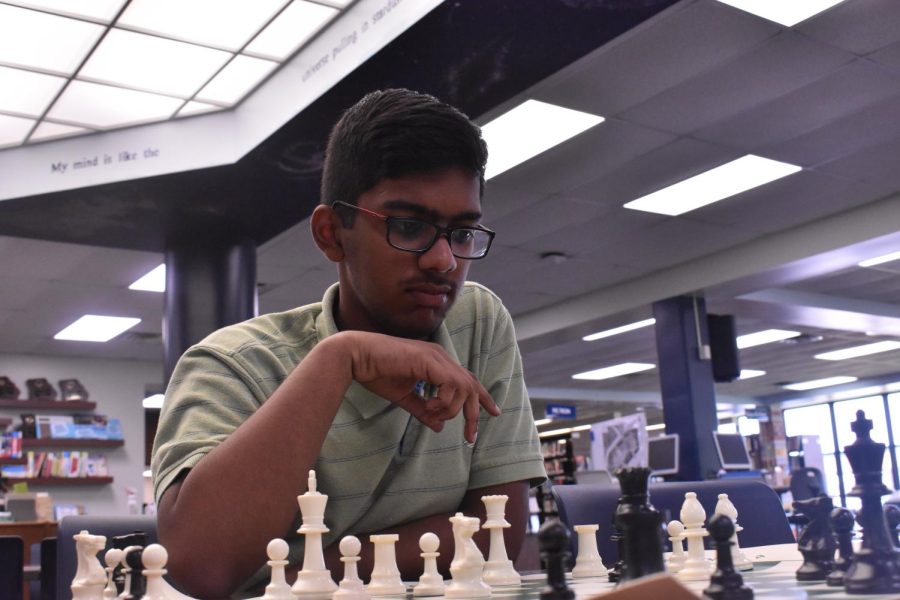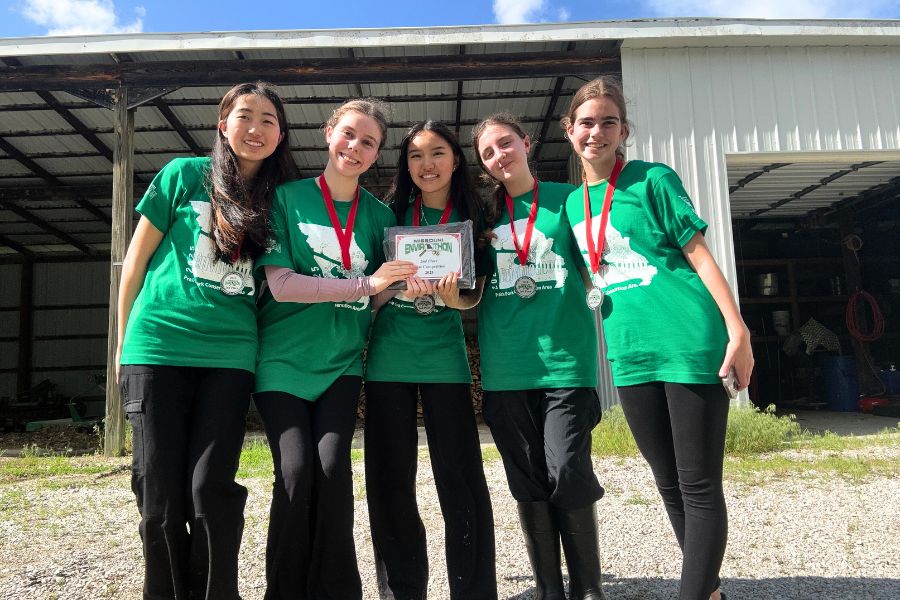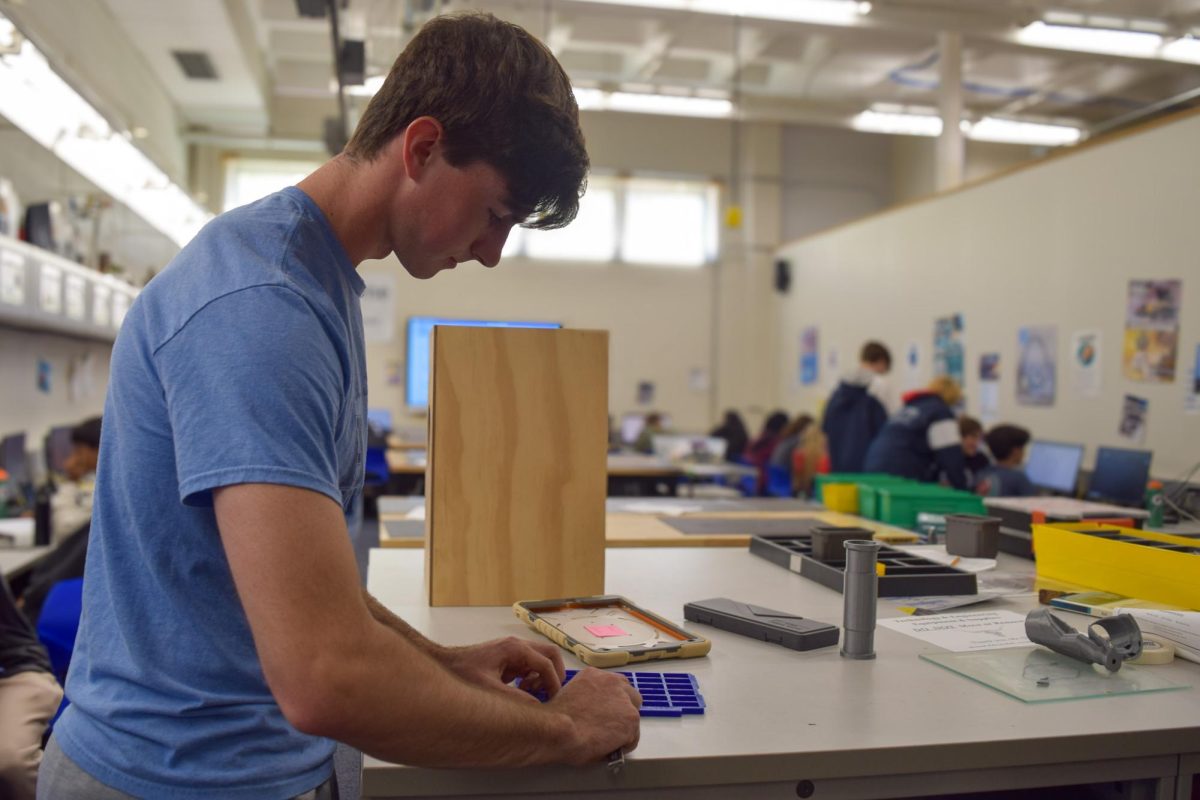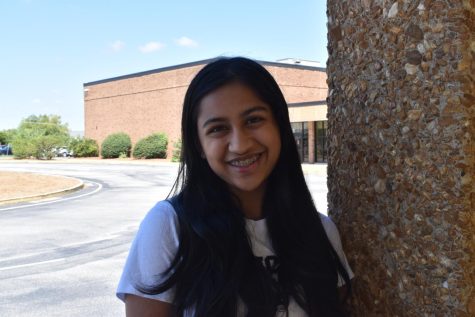When sophomore Karthik Dulla’s United States visa expired, he and his family returned to India in October 2021. They planned to stay for a few months while the U.S. approved a new visa. But, when the pandemic hit, they stayed longer than intended. Stuck in India without access to WiFi or school, Dulla found alternatives to keep himself busy and educated.
“I had a lot of free time since I wasn’t in school,” Dulla said. “And there was no Wi-Fi during the day, [so] I decided to try out chess.”
Dulla learned the rules of chess when he was five, but he did not start playing and studying the game until he moved to India.
“At first, [chess] was the only thing I could do, but then as I started playing it more, it got more and more fun,” Dulla said. “I used to play against a computer, and [after a game] I’d analyze and see where I went wrong, and where my opponent went [wrong], [and] I’d learn from that.”
While India’s government requires children ages 6 to 14 to be educated, around 32 million have never been to school. Intending to return to the United States within a few months, Dulla did not enroll in school.
“We kept thinking we were going to go back to the U.S., so [enrolling in school] would be a waste,” Dulla said. “We thought we’d be able to get the documentation done quickly, but then COVID-19 hit.”
When Dulla’s family saw that the process was taking longer than a few months, they ordered him Physics, Biology and English textbooks from Disha books so he could homeschool himself and prepare for the SCC-JE exams, which are recruits junior engineering students in India.
“My studying was very erratic. Sometimes I’d study for really long, and sometimes I didn’t; nobody was making me, but on average, I’d study around five hours a day,” Dulla said.
Living in rural India gave Dulla time to spend with family while learning how to live without the internet.
“I would get fresh milk from the neighbor and then eat breakfast. [After that,] I would study Biology or Physics if I had free time. After that, I would eat lunch, and then there was more studying,” Dulla said.
Dulla believes his two years of homeschooling got him ahead academically and taught him how to overcome challenges.
“When I didn’t understand something, I was screwed unless one of my parents knew or I knew someone who knew it,” Dulla said. “For me, learning Biology was harder. Biology is a lot of information without explanations, and it all felt unrelated, so I’d often get frustrated. I’d have to move on until I understood the topic more.”
When his family moved back to the U.S. in October 2022, he found transitioning to a structured form of schooling challenging. He was unfamiliar with earning specific credits and participating in clubs.
“I never had to worry about credits or learn about new clubs. I didn’t get to do all that, and I just had to learn about all this new stuff; that was the hardest,” Dulla said. “[Teaching myself] might have been more challenging, but I certainly liked it more [since] it allowed me to [study certain] areas that I wanted to get ahead in.”
Dulla’s original plan to skip a variety of freshman, sophomore and junior classes halted when he learned Parkway students could only earn two credits through testing out of a course. Dulla took Algebra 2 Trigonometry his freshman year and could test out of Honors Pre-Calculus.
“I could be learning so much more,” Dulla said. “I didn’t want to sit through something that I could learn much faster by myself. It doesn’t [affect] me now, but in the future, it might since I won’t be able to take as many classes.”



![Focused on providing exceptional service, sophomore Darsh Mahapatra carefully cleans the door of a customer’s car. Mahapatra has always believed his customers deserve nothing less than the best. “[If] they’re trusting us with their car and our service, then I am convinced that they deserve our 100 percent effort and beyond,” Mahapatra said.](https://pwestpathfinder.com/wp-content/uploads/2025/10/DSC_0018-1200x800.jpg)
![Sophomore Aleix Pi de Cabanyes Navarro (left) finishes up a soccer game while junior Ava Muench (right) warms up for cross country practice. The two came to Parkway West High School as exchange students for the 2025-2026 school year. “The goal for the [exchange] program is to provide opportunities for both Parkway students and our international exchange students to learn about other cultures, build connections and become confident, capable, curious and caring — Parkway’s Four C’s — in the process,” Exchange Program Lead Lauren Farrelly said.](https://pwestpathfinder.com/wp-content/uploads/2025/10/Feature-Photo-1200x800.png)

![Gazing across the stage, sophomore Alexis Monteleone performs in the school theater. The Monteleone family’s band “Monte and the Machine” has been releasing music since 2012, but Alexis started her own solo career in 2024 with the release of her first single, Crying Skies. “My whole family is very musical, [and I especially] love writing [songs with them],” Monteleone said.](https://pwestpathfinder.com/wp-content/uploads/2025/09/DSC7463-1200x798.jpg)
![Amid teaching a lesson to her AP Calculus BC class, Kristin Judd jokes alongside her students in their funny remarks. Judd has always enjoyed keeping the mood light in her classroom, along with on the volleyball court. “[I enjoy] that side talk where you see [or] overhear a conversation and chime in, or somebody says something funny,” Judd said.](https://pwestpathfinder.com/wp-content/uploads/2025/09/image-1200x730.jpg)
![Eyeing the ball, junior Ella McNeal poses for her commitment pictures at Clemson University. McNeal’s commitment comes after months of contact with top Division 1 soccer programs. “ It has taken a lot to get to where I am, but I know that [what] I've already been through is just the beginning, and I can't wait for what is to come,” McNeal said.](https://pwestpathfinder.com/wp-content/uploads/2025/09/IMG_4926-1200x900.jpeg)


![Senior Adam Zerega stands with senior Dexter Brooks by farm equipment. Zerega often worked with friends and family on his farm. “I've been able to go to my family's farm since I was born. I [spend] at least three weekends a month [on the farm], so I'm there all the time,” Zerega said.](https://pwestpathfinder.com/wp-content/uploads/2025/04/IMG_4872-1200x900.jpg)

